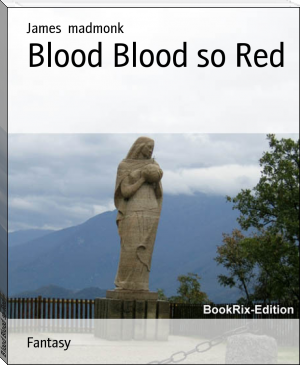Robin Hood, J. Walker McSpadden [book recommendations for teens .TXT] 📗

- Author: J. Walker McSpadden
Book online «Robin Hood, J. Walker McSpadden [book recommendations for teens .TXT] 📗». Author J. Walker McSpadden
“May it please your Reverence,” returned Robin bowing very humbly, “I am but a strolling harper, yet likened the best in the whole North Countree. And I had hope that my thrumming might add zest to the wedding to-day.”
“What tune can you harp?” demanded the Bishop.
“I can harp a tune so merry that a forlorn lover will forget he is jilted,” said Robin. “I can harp another tune that will make a bride forsake her lord at the altar. I can harp another tune that will bring loving souls together though they were up hill and down dale five good miles away from each other.”
“Then welcome, good minstrel,” said the Bishop, “music pleases me right well, and if you can play up to your prattle, ‘twill indeed grace your ceremony. Let us have a sample of your wares.”
“Nay, I must not put finger to string until the bride and groom have come. Such a thing would ill fortune both us and them.”
“Have it as you will,” said the Bishop, “but here comes the party now.”
Then up the lane to the church came the old knight, preceded by ten archers liveried in scarlet and gold. A brave sight the archers made, but their master walked slowly leaning upon a cane and shaking as though in a palsy.
And after them came a sweet lass leaning upon her brother’s arm. Her hair did shine like glistering gold, and her eyes were like blue violets that peep out shyly at the sun. The color came and went in her cheeks like that tinting of a sea-shell, and her face was flushed as though she had been weeping. But now she walked with a proud air, as though she defied the world to crush her spirit. She had but two maids with her, finikin lasses, with black eyes and broad bosoms, who set off their lady’s more delicate beauty well. One held up the bride’s gown from the ground; the other carried flowers in plenty.
“Now by all the wedding bells that ever were rung!” quoth Robin boldly, “this is the worst matched pair that ever mine eyes beheld!”
“Silence, miscreant!” said a man who stood near.
The Bishop had hurriedly donned his gown and now stood ready to meet the couple at the chancel.
But Robin paid no heed to him. He let the knight and his ten archers pass by, then he strode up to the bride, and placed himself on the other side from her brother.
“Courage, lady!” he whispered, “there is another minstrel near, who mayhap may play more to your liking.”
The lady glanced at him with a frightened air, but read such honesty and kindness in his glance that she brightened and gave him a grateful look.
“Stand aside, fool!” cried the brother wrathfully.
“Nay, but I am to bring good fortune to the bride by accompanying her through the church-doors,” said Robin laughing.
Thereupon he was allowed to walk by her side unmolested, up to the chancel with the party.
“Now strike up your music, fellow!” ordered the Bishop.
“Right gladly will I,” quoth Robin, “an you will let me choose my instrument. For sometimes I like the harp, and other times I think the horn makes the merriest music in all the world.”
And he drew forth his bugle from underneath his green cloak and blew three winding notes that made the church—rafters ring again.
“Seize him!” yelled the Bishop; “there’s mischief afoot! These are the tricks of Robin Hood!”
The ten liveried archers rushed forward from the rear of the church, where they had been stationed. But their rush was blocked by the onlookers who now rose from their pews in alarm and crowded the aisles. Meanwhile Robin had leaped lightly over the chancel rail and stationed himself in a nook by the altar.
“Stand where you are!” he shouted, drawing his bow, “the first man to pass the rail dies the death. And all ye who have come to witness a wedding stay in your seats. We shall e’en have one, since we are come into the church. But the bride shall choose her own swain!”
Then up rose another great commotion at the door, and four-and-twenty good bowmen came marching in with Will Stutely at their head. And they seized the ten liveried archers and the bride’s scowling brother and the other men on guard and bound them prisoners.
Then in came Allan-a-Dale, decked out gaily, with Will Scarlet for best man. And they walked gravely down the aisle and stood over against the chancel.
“Before a maiden weds she chooses—an the laws of good King Harry be just ones,” said Robin. “Now, maiden, before this wedding continues, whom will you have to husband?”
The maiden answered not in words, but smiled with a glad light in her eyes, and walked over to Allan and clasped her arms about his neck.
“That is her true love,” said Robin. “Young Allan instead of the gouty knight. And the true lovers shall be married at this time before we depart away. Now my lord Bishop, proceed with the ceremony!”
“Nay, that shall not be,” protested the Bishop; “the banns must be cried three times in the church. Such is the law of our land.”
“Come here, Little John,” called Robin impatiently; and plucked off the Bishop’s frock from his back and put it on the yeoman.
Now the Bishop was short and fat, and Little John was long and lean. The gown hung loosely over Little John’s shoulders and came only to his waist. He was a fine comical sight, and the people began to laugh consumedly at him.
“By the faith o’ my body,” said Robin, “this cloth makes you a man. You’re the finest Bishop that ever I saw in my life. Now cry the banns.”
So Little John clambered awkwardly into the quire, his short gown fluttering gaily; and he called the banns for the marriage of the maid and Allan-a-Dale once, twice, and thrice.
“That’s not enough,” said Robin; “your gown is so short that you must talk longer.”
Then Little John asked them in the church four, five, six, and seven times.
“Good enough!” said Robin. “Now belike I see a worthy friar in the back of this church who can say a better service than ever my lord Bishop of Hereford. My lord Bishop shall be witness and seal the papers, but do you, good friar, bless this pair with book and candle.”
So Friar Tuck, who all along had been back in one corner of the church, came forward; and Allan and his maid kneeled before him, while the old knight, held an unwilling witness, gnashed his teeth in impotent rage; and the friar began with the ceremony.
When he asked, “Who giveth this woman?”





Comments (0)